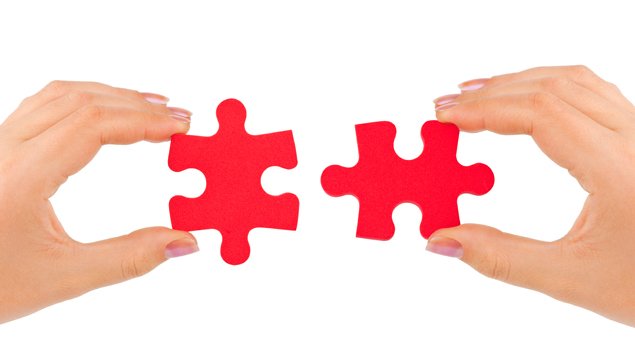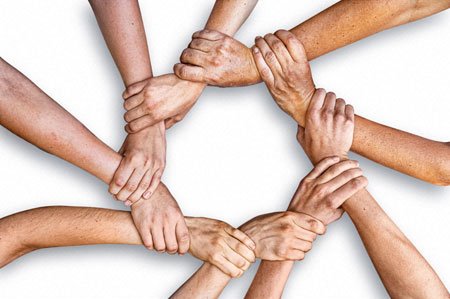MediBloc: giving value to health information

Political decentralization has become consubstantial with the functioning of many health systems. During the last two decades, governments have decentralized fiscal, political and administrative responsibilities to democratically elected regional or local governments, as part of the health reform process. In this way, solid sub-central governments have been created, with sufficient power and resources to carry out an effective management of the health system on new bases. To this sequence is now incorporated the discussion about the need for a new decentralization in the area, which is the decentralization of the health information of the patient, clearly has been treated as a taboo subject in the whole world, nowadays there is a The need to reform the way in which such information is handled is inevitable. This has clearly been the case in the pioneer countries in health decentralization, such as Canada, Australia and the Nordic countries where the idea of generating extensive data on this type has been proposed. of information
The intrinsic reasons for decentralization are not others but to break the uniform guidelines for the provision of services, in favor of answers much closer to the reality (desires, preferences, needs) of each individual. Uniformitarianism and decentralization are antagonistic terms, so that the breaking of the single pattern in the combinations of provision and treatment to the patient, within normal limits, offers a field of experimentation of reforms (including the question of the relative role of the sectors public and private health), and emulation of the best competency practices that is something new in the health system.
Can decentralization go hand in hand with a patient's health information?

In the legal context of health professionals, the Clinical History is the document that reflects not only the medical practice, but also the fulfillment of the duties of the personnel in health with respect to the patient, becoming the tool through which the level of technical, scientific, human, ethical and responsibility of the health professional is evaluated.
It is a must-have tool in the practice of health professionals. It can be defined as a document that contains the written, clear, precise, detailed and ordered narration of all data and knowledge, both personal and family, that refer to a patient and that serve as the basis for the definitive judgment of their current health status.
The professional must record in an individualized clinical history all the information from his clinical practice, relating to a patient, and summarize in it all the processes to which he has been subjected, both to save the memory of his performance and to facilitate the possible follow-up by other colleagues; therefore, it is required to maximize the rigor of its content, that is to say in the clinical history what should be recorded, what was said or what was done about the patient
Bearing this in mind, apart from the fact that many patients carry a series of documents which they can lose such as plaque and exams, laboratory results, medical prescriptions etc, the idea is created to generate a system where all the patient's information is safeguarded, both its history and any document related to its health information, whose platform creates its own blockchain to operate under the transparency and effectiveness of these structures
The decentralization of health information is called MediBloc: Medibloc breaks down the current silos of health information and redistributes the sovereignty of health information to each individual. Patients, health care providers and researchers will benefit through MediBloc.
To be able to access your medical information where you are
Mediblock offers the possibility to the user to access only an internet connection to all your medical record, so this is not in your routine hospital, it is the great advantage, you can share your information with the treating doctor, even if it belongs to Another institution, this information is now treated in a jealous way by hospitals and clinics all over the world, putting the patient at risk, since not having his information at hand the diagnosis between one hospital and another can vary, it is really bad !!
Apart hospitals and clinic teams can suffer damages caused by different reasons, and so easily your information can be lost, if there are patients with lasting diseases, there are hundreds of dollars in exams results and previous diagnoses and that are useful for your doctor to to be able to take care of it, it is necessary to decentralize the way in which this data is handled
Are there more benefits with the decentralization of health data?
Data today are highly valued, it is clear that they are a fundamental part to study and analyze markets, to make technological advances, to create cures for diseases, to see patterns of risk, in the end the data is extremely important and valuable
Users can share this data (if they wish) and be rewarded for it, using the tokens generated by the ecosystem of medibloc, which generates the liquidity for the functioning of the network
By sharing your data, you get benefits and contribute to humanity, because from there they can cure diseases, they can generate services that improve the care of future patients, you can also do studies on diseases, the study of data is unimaginable and it can be used in thousands of positive ways for people
Is this innovation applicable to the current system?

the flows of data from electronic medical records (EMR) and electronic health records (EHR) commonly used in systems of heald are incorporated into the ecosystem, to be compatible with the two most common models of data management, apart from the system will have an area where applications can be implemented for the management of information and thus make advances that result in improvements for people
it is known that it is not a quick change, but the more people use the system, the more people will be incorporated, recognizing the benefits of it, it is necessary to be able to move in the right direction, there is no benefit in that the information is centralized, the information must be where the patient is, where it is needed to help recover the health of the people
all united to attack a disease
With the creation of the platform, user communities are born, which will be able to create groups within the platform and tell their experiences, share data about a specific disease, there they will feel the support of people who are in their same situation, sure groups will be born of help, people who are diagnosed with a disease can count on the testimony and help of others who have already obtained the best way to carry a diagnosis
It is very important not to feel alone, and also to have access to information that is not available in any web portal, data such as a good doctor's number, or a simple prescription to help with an annoying symptom
Service companies can help people

A characteristic of the blockchain are the intelligent contracts, through which the service providers such as clinics, insurers and others, will be able to generate offers for the users, giving advantages and benefits for belonging to the platform, giving the tokens as an option of payment generated by the same ecosystem
If you share certain information of interest that is used to improve some service or to help in some investigation and in the process generates tokens that can be used to pay your insurance policy, that is a "win - win" deal.
sincerely speaking
The way in which health information is handled today seems to correspond to the 50s, so many disadvantages for all and is still being implemented, and there is not even a strong reason why this happens, now analyzing the benefits of decentralization the information we get thousands of reasons to migrate to a system that puts the patient first, that their health is the main thing, to be able to count on their medical information is vital, many times for not having it at hand, the patient spends hours waiting for a mislaid or misfiled data, you also lose hundreds of dollars throughout your life due to mishandling of test results that are lost, broken, or left in a different institution
The same disease may require several specialists, and not all can be in the same institution, then the patient is subjected to this ordeal of being from hospital to hospital with hundreds of exams, with several medical histories, irrigated information that is most useful when united, in the end the patient not only loses money, he also loses the possibility of better care
If you want to know more about MediBloc, watch this introductory video
This article was created for the contest of @originalworks if you want to participate or know more about the subject here
medibloc2018
)
)



@loganjose, you are interested in reading, maybe you read me too